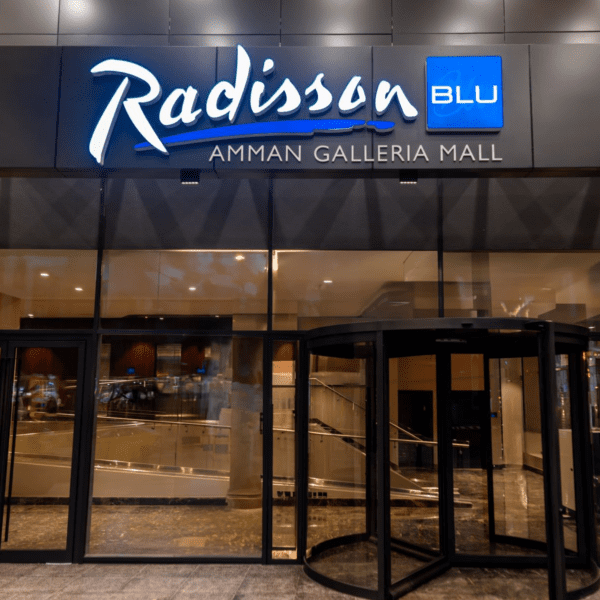Business is built on trust inculcated in the customer for the products the businesses sell. The success factor of any business depends on the brand value that the business promises to deliver to the guest. This value is always defined from the perspective of the guest. The smooth running and profitability of any business is based on the efficient, hitch-free movement of the supply chain taken care of by capable and diligent employees who own their roles and embody the essence of the brand principles. It is employees who aim to raise their own standard of work and attitude to the level of an exemplary brand ambassador, that are the treasured lot upholding the brand reputation and ensuring a healthy bottom-line.
When these brand ambassadors do not uphold the brand flag and become less than competent and conscientious, the brand value of the business, the brand promise to the guest, brand loyalty from the guests and brand reputation in the minds of all stakeholders take a nosedive.
So, what are the prime factors that are bound to put you on a downward escalator, making the climb back even more arduous and painful than when you started out?
Disinterested, nonchalant, ill-trained staff
When we go out to work, in any job or industry, we cannot afford to be uncaring, perfunctory and uninvolved. It is morallyÊbinding that we bring ourselves fully to our positions regardless of internal irritants that exist or imagined issues that we wrestle with. When we are in the hospitality industry, which isÊa show business of providing experiential service to guests who come and spend their top dollar with us,Êsuch dismal disregard is completely inappropriate and unbecoming.
In the front of the house areas, I find reception desks, mise en place stations and micro centres to be such terrible breeding grounds for overly germ-contained behaviour thatÊI dread being seated anywhere close to.
We recently went out for dinner to a popular Italian restaurant run by a celebrated city chef. Unfortunately, the layout of this restaurant was that you were always at an arm’s length from those chit-chat coves. This evening, we had staff joking around, gossiping and doing anything, but work at those hubs in a near-empty restaurant.
This behaviour pattern is a dead giveaway for bad training, lack of interest in one’s job and lack of respect both for the company and the guests. The smirking and the smart alec-y attitude does more long-term harm than can be envisaged and undone.
Attention to detail is amiss
Paying attention to detail is a valuable trait in any profession. But in the hospitality industry it assumes far greater significance, because there are so many levels of product and sub-product presentations and so many strata of service delivery opportunities. Dropping the ball even,Êduring the smallest of tasks in any section of the hotel, can have a direct repercussion on the guest experience or an indirectÊconsequence in terms of brand delivery and reputation.
When we walked into the above-mentioned spiffy restaurant, we were showed to a table that was not clean. Even a fast food restaurant with a packed house, the pick-eat-go nature of service and fast turnaround cannot afford to seat guests at tables that have not been wiped; this place certainly had no excuse for that.
We were seated on a table that was not ready, and wasÊmissing napkins and sundry other things. Soiled mats is never a good way of showcasing a restaurant, and you do make matters worse when simple additions of Evoo and balsamic vinegar are missing from the table of an Italian restaurant.
The lighting of the place was low, making it difficult to read the menu. Poor lighting is an oft-repeated mistake committed the world over in the name of ambience and mood. How can restaurants miss the basics while planning the structure? Hotels and restaurants have to have a 360-degree view of issues: light -Ênatural and artificial, temperature control, noise, location, pollution, traffic, accessibility amongst a host of other pertinent subjects.
My biggest woe, however, at any restaurant is their complete negligence of cleanliness Ð telling tales in the tines of forks, stain marks on glassware, napkins with stubborn reminders of rather sharp gravy, staff uniforms that bear the stench of climate and callousness.
There are scores of restaurants Ð stand-alone and those in the confines of glitzy five stars Ð that kill guest satisfaction with their indifferent service and sub-standard offerings.
Staff is technologically challenged or not abreast with the latest advent
Technology, as is the human need, is evolving every nanosecond. A new gizmo is being invented or an old gadget updated at lightning speed for our ease, efficiency and convenience. So it is in our own interest that we stay on top of it, unlearn and relearn so as to give our optimal output.
Many chains and independent hotels and restaurants invest sizeable energy and budget to systems and devices up gradation, and to training their workforce in it. At a bistro in a well-known hotel, a steward thrust a tablet in front of me for feedback, not knowing how to operate it himself. When asked to return to a previous page he said resignedly in Hindi, “Woh toh chale gaya. Ab nahin milega. (The page is gone. I cannot retrieve it).” The steward erred grossly on two counts Ð first, he resorted to colloquial language while conversing with a guest when he should have stuck to the formal language of communication. Secondly, he or his establishment had failed to provide him with the requisite training. I felt like leaving the same sentence and sentiment as our comment on the contraption.
The heart of the matter is grossly questionable
At places with ill-trained staff, the food and atmosphere can be a great saviour. Suffice it to say that at our ill-fated outing at this Ôall shine, no substance’ Italian place, we were denied even that. The pizza was most ordinary. Domino’s does far better. The little accoutrements were missing, the breads were far from fresh – the parmesan was floor dust massed-up in little balls and not freshly grated. And the tomato and basil spaghetti from the eponymous restaurant left a lot to be desired – the sauce was a thick, over stirred mass, overly salty and robbing the pasta of any taste or flavour, the spaghetti was not quite al dente. If you get your two basic dishes so wrong, how would you instil confidence in the customer to try out your trumped up menu that is heavy on the design value and comes out as a piece of literary fiction, because your heart is not in its place?
I once had this well-established and feared food critic share her exasperation on how the doormen made her feel small each time she came to the hotel in a tuk tuk/auto rickshaw. The disdainful behaviour of one team member made her feel spiteful of the hotel at large.
On the other hand, I fondly recall the spotlessly liveried Doorman of The Pierre (a Four Seasons Hotel at the time of my visit), who was such a joy to have the first interface with as I got down from public transport that was carrying me from around Newark Airport to the heart of Manhattan. The wise, well-behaved, thoroughly groomed gent set the tone for one of the best hotel stays in my life.
When upselling ends up in short-selling
Spaghetti Kitchen, the Italian restaurant, we have been talking about in this article messed up so badly on staff that were not only ill-trained but also wrongly trained. Now, we know that all hotel staff is tutored to upsell Ð from the salesÊand marketing representatives and front office folks to the foodÊand beverage personnel. But upselling is an art form and a fine-tuned strategy. Its art lies in making subliminal suggestions to the guests who then think that it is either their own choice or have been done a favour by being sold a higher priced service orÊproduct.
The good fellas at Spaghetti Kitchen were soÊappallingly trained to be pushy and aggressive about all that upselling they unleashed on us and other guests Ð from pushing heavily taxed bottled water to diners who do not drink water with their meals, to openly snickering at our small two-course order for the late, late-night quick meal we went for, to pushing desserts to a table that was disinclined towards them, to at least try to shove overrated coffee to the couple that wished to finish the meal with a simple tiramisu Ð these brand anti-ambassadors managed to short sell their reputation and image, pushing the guests even farther from their brand.
Not bringing closure to a guest issue
Hotels and restaurants, since they are a people centric industry Ð by the people and for the people Ð fall open to a multitude of issues and crises that revolve around the troika of human ability, attitude and emotion. Nobody likes to be short-changed in their service expectation and product usage. In technological things, one can still blame the science or physics, but in the service industry it is thinking, rational and able people who are at the centre of it, and cannot get away by saying that the hardware malfunctioned or there was a systems error.Ê
In the case of the Italian restaurant we have been referring to, we let our displeasure known several times during the evening. Our complaints seemed to be falling on uncaring, unwilling ears. It was only when we let the strange people at Spaghetti Kitchen know that we were “industry folk,” that some sense of respect was brought forward and the erring waiter quickly replaced by the manager and the maitre’d. This sort of knee-jerk reaction leaves a lot to be desired and robs the guest of any confidence he may have in your brand.
Since there were a plethora of issues we faced on that fateful Òso-calledÓ fine-dining dinner, we scaled up the matter to the company’s image managers. The PR reps, who call themselves PR pundits, picked up our rant on the food forum and came back with too little, too late and too dispassionately. I gave the PR lady a reminder (reminders are sacrilege in the PR world of work); she gave me a passing apology perhaps only to go back to write her nth note to the restaurant management. The management eventually wrote to me with the standard invite to Ôcome try them again Òon the houseÓ’ without realizing that faith is never won with a free meal.
In our line of business, there are warning signs that flag out much before they become crises for the guests. We must learn to read them in time and draw out our plan of action to keep our SOPs well-oiledÊwell before we are coerced into the battle zone toÊundergo damage control.
By L. Aruna Dhir
L. Aruna Dhir is a hospitality and feature writer and columnist. Her industry writings are used as references in case studies and hotel schools. With over 16 years of experience with some of India and Asia’s top hotel brands, Aruna is a seasoned corporate communications specialist, PR strategist and writer who has taken a sabbatical, after holding the position of the Director Ð Public Relations at The Imperial New Delhi, in order to work on book projects on Public RelationsÊand Communications, Hotels, Food and India respectively. As an industry expert, Aruna has launched brands, developed training modules, created standardization of business communication and written manuals. Aruna has represented India to a select group of opinion-makers in the United States, as a Cultural Ambassador under the aegis of Rotary International and participated in the IXth Commonwealth Study Conference held in Australia and chaired by Princess Anne. In her official and personal capacity L. Aruna Dhir has and continues to work on several social awareness projects Ð People for Animals, Earthquake Relief, National Blind Association, PETA and Friendicoes to name a few.































